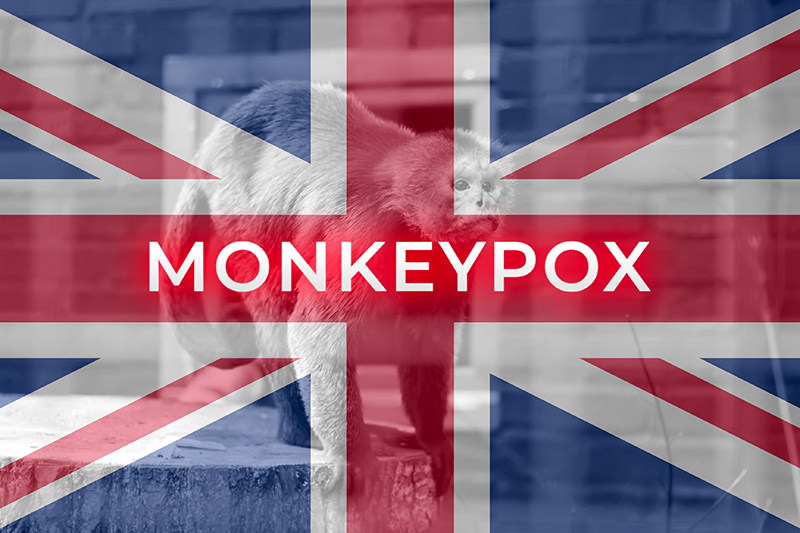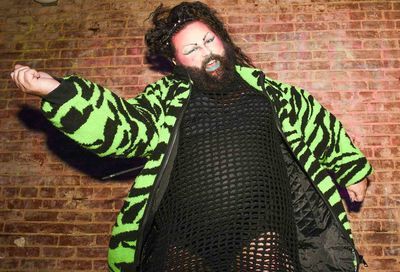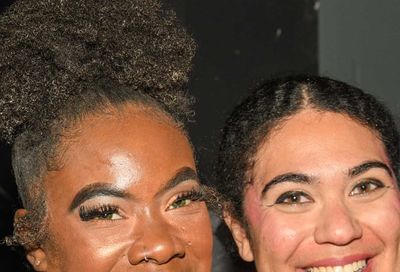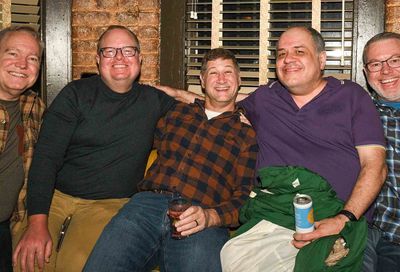Helping LGBTQ Smokers Kick the Habit
DC Quit Now, a new outreach effort from the D.C. Department of Health, offers an array of free services to help locals quit smoking.

In 2024, you would be hard-pressed to find anyone unaware of the fact that smoking tobacco carries dire health risks.
While the number of people who smoke tobacco may be far fewer than in years past, smoking – including highly addictive nicotine vaping – remains a fixture of our health landscape. This is particularly true of the LGBTQ community. Accordingly, the D.C. Department of Health is turning new attention to the LGBTQ cohort.
“So many people think we’ve solved the tobacco problem because people aren’t smoking as much as they used to,” says Carrie Dahlquist, manager of the department’s Tobacco Control Program, which oversees DC Quit Now. “It’s not quite as prevalent in the community, but there are still pockets of populations, of certain communities that tend to have much higher tobacco-use rates than others.”
National health entities are well aware of this sad fact.
As the American Lung Association stated in its “Smoking Out a Deadly Threat: Tobacco Use in the LGBT Community” report, “Smoking is the leading cause of preventable illness and death in the country. It is the primary cause of two of the deadliest lung diseases: lung cancer (which causes more American deaths than any other cancer), and chronic obstructive pulmonary disease (COPD), the fourth leading cause of death in the nation.
“Since the smoking rate within the LGBT community is roughly double that of the general population, more members of the LGBT community are at greatly increased risk of these deadly diseases, as well as other tobacco-related health threats such as heart attacks and strokes.”
According to the Centers for Disease Control and Prevention, roughly 15 percent of bisexual, gay, and lesbian adults in the U.S. smoke cigarettes, compared to about 11 percent of heterosexuals. More striking is that rate jumps to nearly 36 percent among transgender adults.
Accordingly, Dahlquist’s D.C. team is applying a CDC template to outreach to local LGBTQ smokers with an effort dubbed “Hope From A DC Ex-Smoker.” That’s why you’ll see a gay local, Jeff Scott, sharing his story of quitting in a short video.
Scott starts by telling viewers how he began smoking at 19 while working in theatre. “A good portion of the cast smoked,” he recalls.
Years later, in 2020, with Covid shutdowns and quarantines complicating so many aspects of Washington life, Scott tells viewers that he simply ran out of cigarettes and didn’t particularly feel like heading out for more.
“I kind of realized, ‘I haven’t had a cigarette for a few days, and I feel okay, so maybe we should just keep doing this,” he says in the video, advancing his story to where he enjoys the benefits of being smoke-free. “After quitting, I can definitely tell that my breathing has improved. I didn’t have the tightness in my chest or the struggling for air when I was working out. My mental health improved. I became a lot more productive. I wish I would’ve quit many years ago. It would’ve saved me a ton of money, for sure.”
While Scott’s video is intended to offer local LGBTQ smokers a relatable, ideally inspirational, story about quitting, Dahlquist says her program is at the ready to help D.C. smokers take the next step with an array of no-cost services and tools.
The team works with those hoping to quit by designing tailored plans, a variety of counseling services with “quit coaches,” and nicotine-replacement therapy such as gum and patches. While all of this is free for D.C. residents, there is one ask of the community: If you’ve already quit, perhaps you’d consider sharing your story?
“We want to hear from people in the community,” says Dahlquist. “We want to know about their experiences. If you’ve learned about DC Quit Now through the social media campaign or on the web, we’d love to get your feedback. What inspired you to try to quit? If you’ve already quit, what helped you the most? What would you want to share with other people about your journey?
“Because what we’ve found is that people are really inspired hearing that other people have done this. It’s not impossible to quit. It’s difficult. And not every quit attempt is going to result in quitting tobacco. But every attempt is another step along the way.”
In his video testimonial, Scott agrees.
“Quitting is not easy,” he says. “But it is possible. Stick with it. And you have to be kind to yourself.”
Watch the video below:
For more information about DC Quit Now, visit DCQuitNow.org or call 1-800-QUIT-NOW (1-800-784-8669).
Support Metro Weekly’s Journalism
These are challenging times for news organizations. And yet it’s crucial we stay active and provide vital resources and information to both our local readers and the world. So won’t you please take a moment and consider supporting Metro Weekly with a membership? For as little as $5 a month, you can help ensure Metro Weekly magazine and MetroWeekly.com remain free, viable resources as we provide the best, most diverse, culturally-resonant LGBTQ coverage in both the D.C. region and around the world. Memberships come with exclusive perks and discounts, your own personal digital delivery of each week’s magazine (and an archive), access to our Member's Lounge when it launches this fall, and exclusive members-only items like Metro Weekly Membership Mugs and Tote Bags! Check out all our membership levels here and please join us today!

























You must be logged in to post a comment.